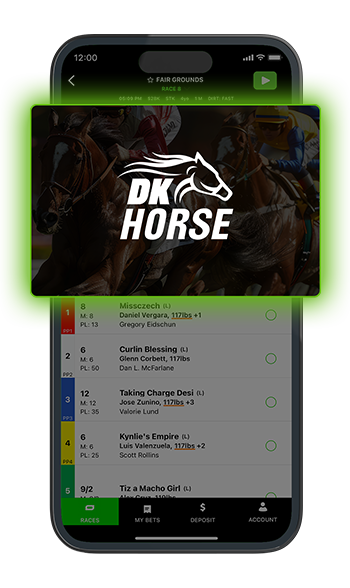
How to Bet on Horse Racing

How to Bet on Horse Racing
Known as the sport of kings, horse racing is a centuries-old sport steeped in tradition and grandeur, and the excitement of wagering on horse racing has never faltered throughout its long history.
Betting online or at the track is a thrilling experience that enhances the excitement of the events. If you're new to horse racing, this article will provide the basics of how to bet on the horses, with some helpful tips for getting the most out of a day at the race track.

Types of Horse Races
There are two main breeds of horses that compete in races in the US - Thoroughbreds and Standardbreds. Standardbreds compete in harness racing, while Thoroughbreds race on the flat. Flat racing is the most familiar style in the United States, which involves competing on a flat course, unobstructed by obstacles. The horses usually run an oval track, and through the finish line after a predetermined number of laps (race distance varies by competition).
How to Read Horse Racing Odds
Odds refers to the amount of money you can expect in return after placing a bet. Betting is expressed in an x-y format; for instance, 2-1 odds would pay $2 on a $1 bet. Even money refers to 1-1 odds—paying out $1 for a $1 bet.
Odds scale to the bet, so a $100 bet on 10-1 odds will pay out $1,000. With every win, you also receive your initial stake back—which would net you $1,100 with a 10-1 wager.
Types of Wagers
Most horse race betting is done through a pari-mutuel system, a pool-betting system in which each bet type has its own payout pool. With pari-mutuel betting, the final payout isn't determined until the total betting pool closes. After the race has been run, bets are paid out by splitting the pool according to the odds at the time of the bet.
In horse racing, you're able to make two main types of bets on horses: straight wagers and exotic wagers, which are broken down further into specific bet types.
Straight wager
Straight wagers are the elementary bets for horse racing. As the name suggests, they're straightforward wagers you can make on the performance of specific horses in the race.
Win
A win bet is a wager on a horse to finish in first place of a specified race. If your horse comes in second, third, or later, you don't win the bet.
Place
A place bet is a wager on a horse to finish in first or second place. If your horse wins the race or places second, you win your bet. Payouts are considerably smaller than win bets, because the pool is split between those who made a place bet on the winning and the second-place horse.
Show
Show bets win if your horse finishes in first, second, or third place. The pool is divided among bettors on three horses with this style of betting, which makes payouts small in comparison to other types of wagers, often paying 1-2 or less. Show bets are a great option for beginners to learn the ropes of betting on the horses.
Across the board
Betting across the board means you're betting on your horse to win, place, or show. You’ll place a separate bet on each placing; for example, $1 to win, $1 to place, and $1 to show. If your horse finishes first, you collect winnings for all three bets. If the horse finishes second, you lose the win bet, but the place and show bets both pay. If your horse finishes third, you only collect winnings for the show bet.
Exotic wagers
Exotic wagers are one-shot bets on multiple horses in a race. Exotic horse racing betting types give you the opportunity to walk away with much larger payouts, but they have much longer odds of winning.
Exacta
An exacta wager is a bet on two horses to finish first and second place in exact order. For example, if you bet on horse #4 to come in first and horse #7 to come in second, the bet only pays out if #4 wins and #7 comes in second.
Quinella
The quinella lets you bet on two horses to come in first and second, in either order. In the case of a bet for horse #4 and #7 to come in first and second place, the bet pays if both finish in the first two spots—regardless of which one finished first and which one finished second.
Trifecta
A trifecta bet is a wager on three horses to come in first, second, and third place in a race, in exact order. A bet on horse #4 to win, #7 to finish second, and #9 to finish third only pays out if they all cross the finish line in that same sequence.
Superfecta
The superfecta works the same as the exacta and the trifecta, except that you're betting on the first four horses to finish in a precise order.
Boxing exotic bets
With exacta, trifecta, and superfecta wagers you have the ability to "box" your bet, meaning your wager pays out regardless of what order your horses pass the finish line. A box bet costs more, but has better odds of winning the wager.
A boxed exacta is very similar to a quinella. Both win regardless of which order the two horses finish, as long as they both finish in the first two spots. When determining whether to bet a quintella, rather than a boxed exacta, you might want to consider the payout versus the wager.
Horse Betting Angles
Angles are a quick way of assessing risks and improving your chances of winning when wagering on horse racing. Each race is unique, so it works in your favor to consider the specific situations that go along with each race and each horse. Angles improve likelihoods of a win, place, or show, but are not any guarantee that any horse will win, even when every circumstance is perfect for that competitor. Here are examples of some angles to look at when placing horse racing bets.
Class changes can impact the betting angle. For example, if a horse drops a class, but has shown to be fast in higher class races—with no drop in speed prior to moving down a class—this gives the horse an edge in winning.
Jockey switches can have a dramatic impact on a horse's performance. If a horse has shown to perform better under the direction of a seasoned rider, changing to an unproven jockey before a race could reduce the likelihood of that horse winning. The reverse holds true if the horse is losing a fairly average rider, but gaining a good one, this can improve the chances of placing in the top three.
Surface type often has an effect on a horse's performance. Though some horses run well on any surface, some may become accustomed to a natural or artificial track surface. Knowing a competitor's preferred track surface and comparing it to the surface it will be running on in the current race can give you a betting advantage.
What is a racecard?
Racecards are printed booklets that outline upcoming races and the horses competing in each. Horse tracks, pari-mutuel venues, and online horse betting sites offer racecards to arm you with information and enable you to assess competitor stats when making your betting choices.
How to read the horse racing form
A horse racing form contains data about a specific horse in a specific race. They contain a lot of data, but each one has a header that gives you critical at-a-glance information. The image below shows the basic layout of a racing form header.
The upper left corner displays the race number, with the name of the track to the right. The far upper-right corner displays an alphanumeric code that experts can read to get an even quicker snapshot of the horse and race information.
The number displayed beneath the race number is the horse's number for that race. Beneath that, the form lays out the static racing conditions, which usually includes the length of the race, the horses track record, the winner's purse, and necessary qualifying conditions to enter the race.
Horse Betting Tips
If you’re in it for the fun of it, bet in the way that makes you happy. If you're betting to win, numerous variables play a role in which competitor wins, places, or shows with any horse racing bet. No angle or track advantage guarantees a payout. Hedging bets with place or show wagers, improves your betting odds, but anything can happen.
The best advice anyone can give on horse race betting is to have fun and enjoy the show!
